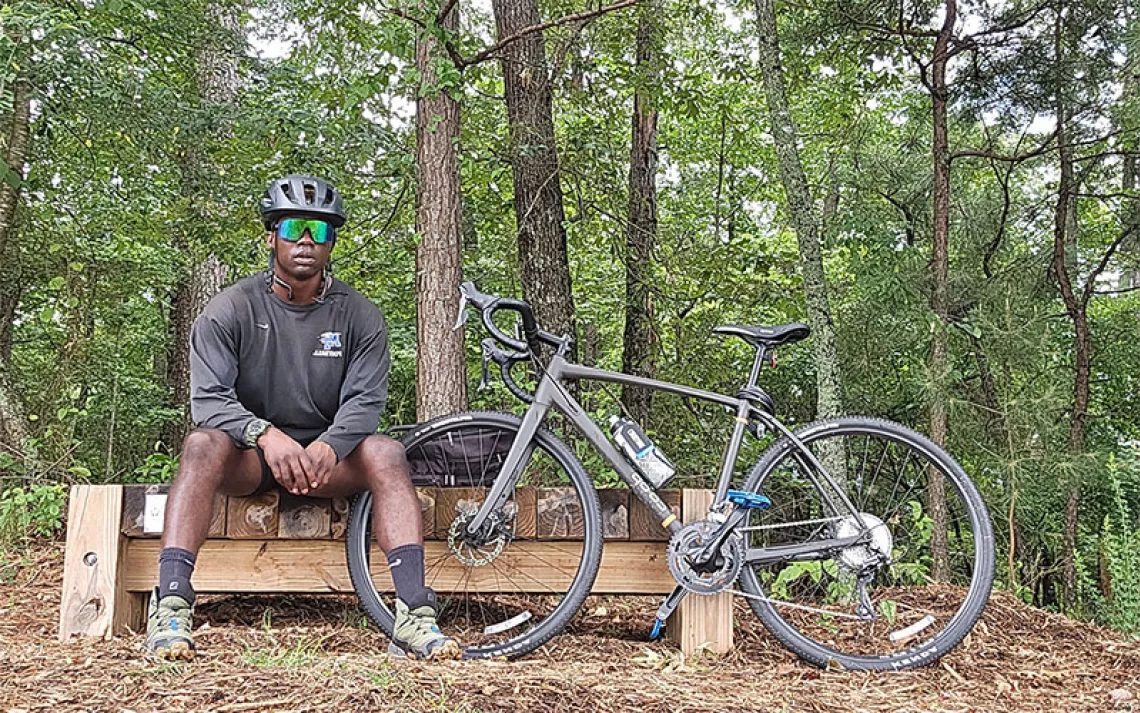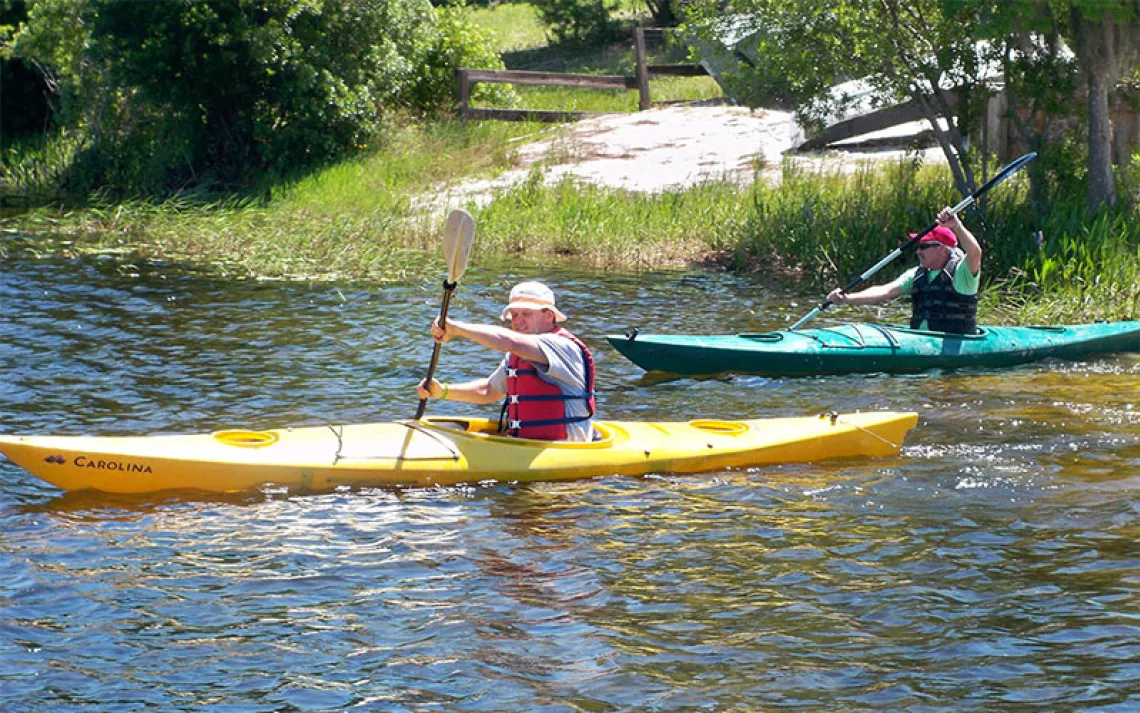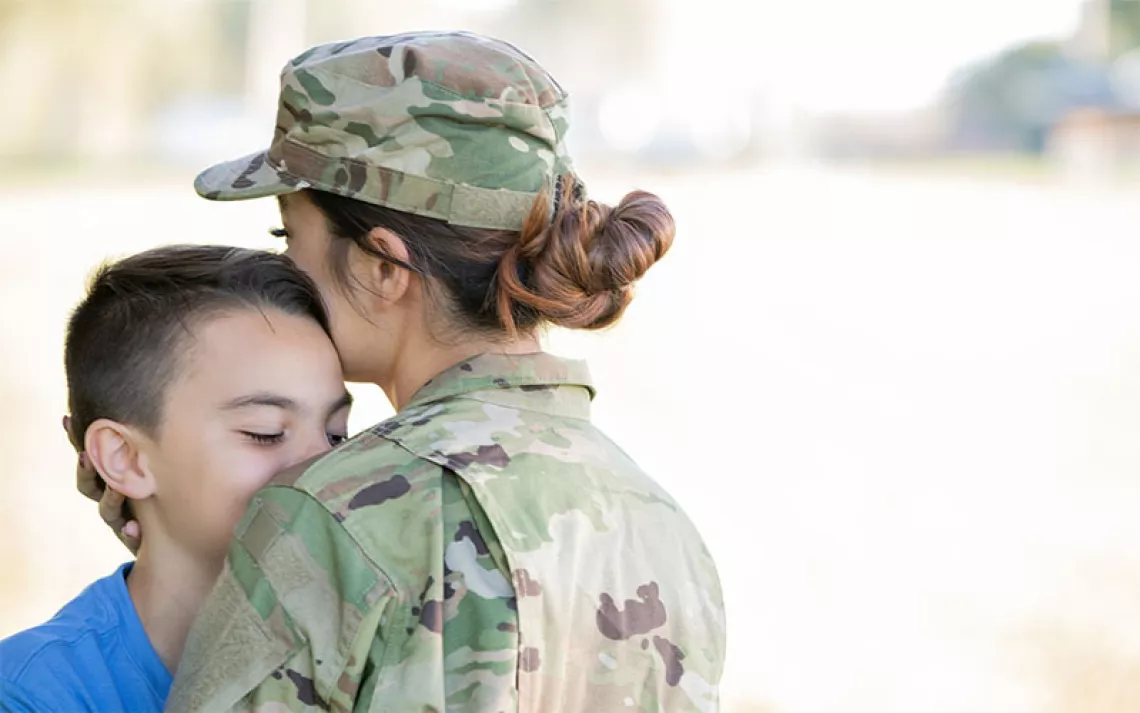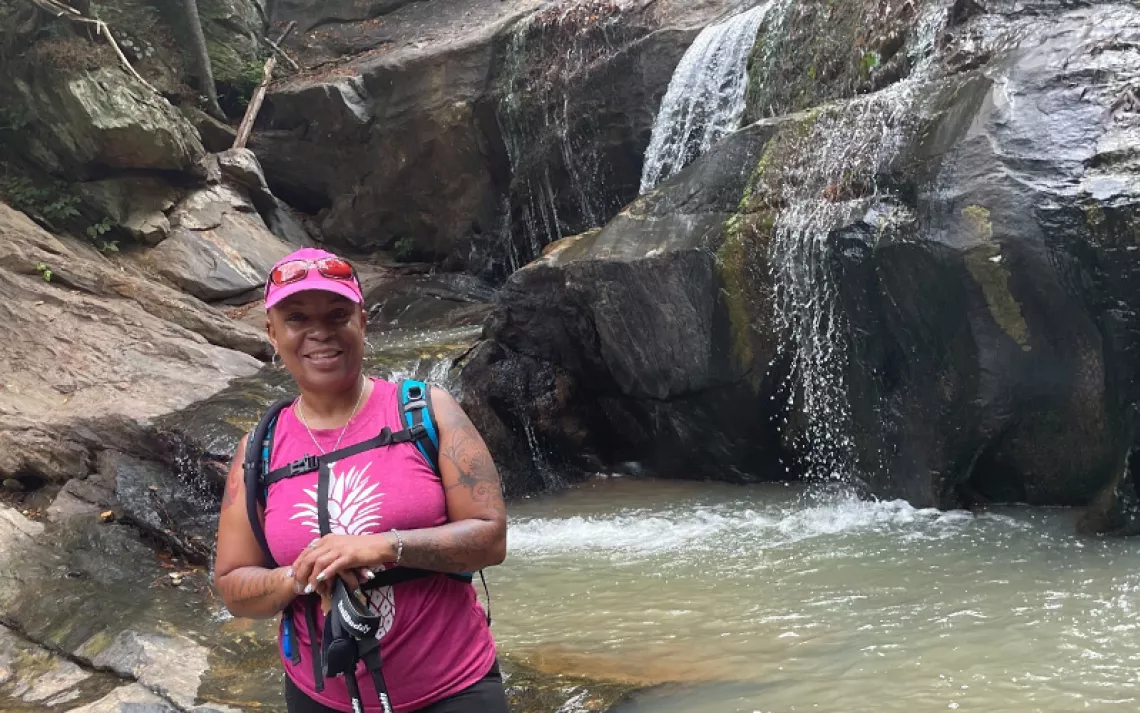Gathering of the Trybe
For veterans, ecotherapy can pry open the clamshell of past trauma

Photo courtesy of Trybe Ecotherapy
On a muggy morning in the dregs of August, a small group of men and women gather in a clearing in a hardwood forest outside Rochester, New York. Two at a time, they kneel and work together to start a fire using a bow drill, the socket of which is lubricated with a tuft of moss. Once the fire is kindled and then blazing, they step back into a loose circle. Lindsay Cray prompts them, one by one, to share the past week's ups and downs: frustrations with family, triggers for anxiety and depression, tools they've harnessed to feel more grounded in their lives.
Cray, an outdoor educator and mental health counselor in training, is the cofounder of Trybe Ecotherapy, a year-old mental health service that supports veterans seeking to heal from a variety of traumas by working them out in the literal open. Its curriculum draws from a growing body of research on outdoor therapy, a broad mental-health-care specialty whose practitioners can now receive accreditation through the Association for Experiential Education.
The meeting in the Rochester woods was the culmination of Trybe's first 12-week program, which served a cohort of 10 veterans; Cray hopes to begin offering such programs regularly. Trybe was created, fortuitously, just before New York passed the Outdoor Rx Act, which tasks the state's Division of Veterans' Services with increasing vets' access to the outdoors and outdoor therapy. The bill, which was supported by the Sierra Club's Military Outdoors campaign, is aimed especially at helping those, among the country's 19 million vets, suffering from PTSD, anxiety, or depression or recovering from substance abuse or a military sexual assault. It joins similar efforts such as Park Rx, in which physicians prescribe time outdoors and which has received some funding from the US Department of Defense.
Meredith Rutherford, Cray's business partner, says recent research shows that being outside lowers anxiety and stress levels. "Trauma closes off our senses like a clamshell. Being outside opens that clamshell a little, and it continues to open up when we compound that with mindfulness work," she says.
Christine Lynn Norton, a research scientist with the University of New Hampshire's Outdoor Behavioral Healthcare Center, emphasizes that veterans have unique needs: "One thing that's critical is a trauma-informed approach to working with them." For Jason Jipson, a marine who was deployed to Iraq and who struggles with PTSD, anxiety, and depression, ecotherapy sessions are "a safe space." During the Trybe program, he says, "I've come to understand it and figure out why it's happening instead of going in [to a therapist's office], talking about what I'm feeling, and then I come back next week and do the same thing. I think it's better to be outside. You can breathe, and you're with your brothers and sisters."
At Trybe meetings, vets participate in a variety of structured activities that allow them to take a new look at their issues and share them with one another. In the "trigger tree" exercise, Cray instructs the vets to "think of a really stressful situation or moment and say, 'This tree represents that trigger.'" They can't move the tree by pushing against it, but they can step to the side and behold the rest of the forest. "I use it when things are bothering me," says Susan Brumley, a retired army-supply quartermaster who was stationed in Korea and who grapples with depression. "I think, 'OK, I get that big tree because I can't change it.' Then I see the forest and think about not thinking about the negative thing."
Aaron Leonard is a senior campaign representative for the Sierra Club's Military Outdoors program and a vet himself. He says a veteran struggling with PTSD "might wake up on the verge of exploding or shutting down for the day or doing something harmful like taking a big drink at 5 A.M. to calm their nerves." Participants in ecotherapy, he says, "see a decrease in their sense of loneliness and an increase in their sense of belonging and well-being. It's not permanent, but it's part of the recovery process."
Trybe is being funded this year by Monroe County, where Rochester is located. But more long-standing funding is needed, Cray and Rutherford say. For that, they'll need detailed data showing the positive effects of this specific program, something Trybe is working with an epidemiologist to assemble. Though statistically small, the initial data is promising, showing that over 66 percent of participants had an improvement in PTSD symptoms and 70 percent benefited from the mindfulness program.
They might check in with Emil Anderson, a Vietnam marine veteran with PTSD and a past drug addiction who found Trybe through Rochester's Veterans Outreach Center. "Just feeling like a part of nature reminds you that you're part of the world, part of life," he says. "No matter what I did when I was in there that made me feel bad, I don't have to stay back there. For me, it's been such a help knowing I don't have to keep my mind back there. I can keep my feet grounded in today. The universe and I are part of each other, and the woods teach me that it's all right to be a part of nature."
This article appeared in the Winter quarterly edition with the headline "Happy Trails."
This article was funded by the Sierra Club’s Military Outdoors program.
 The Magazine of The Sierra Club
The Magazine of The Sierra Club



